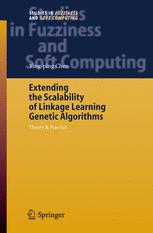

Most ebook files are in PDF format, so you can easily read them using various software such as Foxit Reader or directly on the Google Chrome browser.
Some ebook files are released by publishers in other formats such as .awz, .mobi, .epub, .fb2, etc. You may need to install specific software to read these formats on mobile/PC, such as Calibre.
Please read the tutorial at this link: https://ebookbell.com/faq
We offer FREE conversion to the popular formats you request; however, this may take some time. Therefore, right after payment, please email us, and we will try to provide the service as quickly as possible.
For some exceptional file formats or broken links (if any), please refrain from opening any disputes. Instead, email us first, and we will try to assist within a maximum of 6 hours.
EbookBell Team

4.1
30 reviewsGenetic algorithms (GAs) are powerful search techniques based on principles of evolution and widely applied to solve problems in many disciplines.
However, unable to learn linkage among genes, most GAs employed in practice nowadays suffer from the linkage problem, which refers to the need of appropriately arranging or adaptively ordering the genes on chromosomes during the evolutionary process. These GAs require their users to possess prior domain knowledge of the problem such that the genes on chromosomes can be correctly arranged in advance. One way to alleviate the burden of GA users is to make the algorithm capable of adapting and learning genetic linkage by itself.
In order to tackle the linkage problem, the linkage learning genetic algorithm (LLGA) was proposed using a unique combination of the (gene number, allele) coding scheme and an exchange crossover to permit GAs to learn tight linkage of building blocks through a special probabilistic expression. While the LLGA performs much better on badly scaled problems than simple GAs, it does not work well on uniformly scaled problems as other competent GAs. Therefore, we need to understand why it is so and need to know how to design a better LLGA or whether there are certain limits of such a linkage learning process.
This book aims to gain better understanding of the LLGA in theory and to improve the LLGA's performance in practice. It starts with a survey and classification of the existing genetic linkage learning techniques and describes the steps and approaches taken to tackle the research topics, including using promoters, developing the convergence time model, and adopting subchromosomes. It also provides the experimental results for observation of the linkage learning process as well as for verification of the theoretical models proposed in this study.